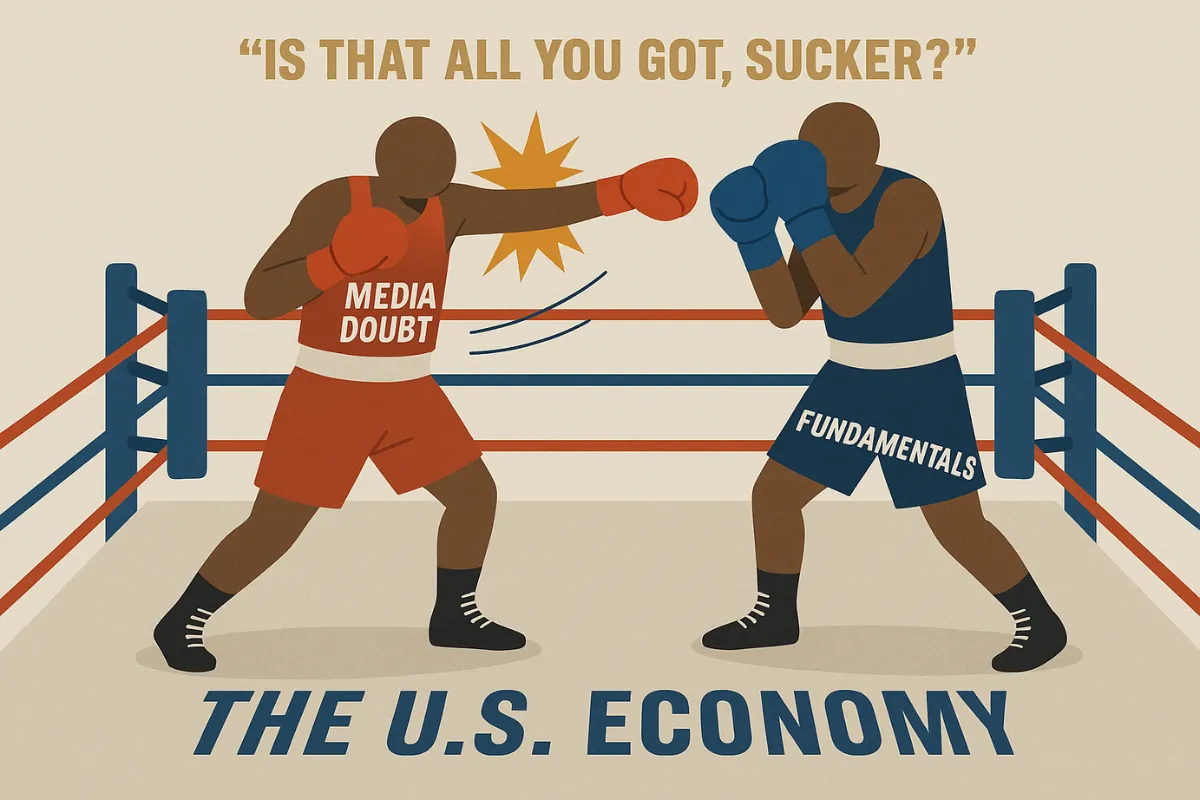BLOG

It’s Not Over Yet
George Foreman affectionately known as “Big George” died this week on March 21 at the young age of 76. He has many accolades to be remembered including his boxing career, business successes, father, Christian faith, and philanthropic causes. After winning Gold at the 1968 Summer Olympics, he entered professional boxing and over the next 20+ years fought 76 professional fights he ended 68 with a KO. He retired and then returned at age 45 in 1994 to KO 26-year-old Michael Moorer to become a two-time heavyweight champion and next year successfully defended his title against Axel Schulz. Foreman was the oldest to ever win a world heavyweight boxing championship.
However, one of Foreman’s most memorable fights was the “Rumble in the Jungle” on October 31, 1974, in Kinshasa, Zaire against the fast-rising Muhammad Ali. The promotion and hype went worldwide as the event is still considered one of the greatest all-time sporting events with over 1 billion people tuning in to watch including 50 million via pay-per-view.
On fight day, Foreman was favored 7 to 1 to win.
The match-up lived up to the promotion as each fighter landed crushing blows round after round. However, as the fight entered later rounds Foreman recalls landing some of his hardest punches to Muhammad’s body that would buckle most fighters. Not Muhammad, he leaned into Foreman and whispered, “Is that all you got sucker?”
The underdog Muhammad Ali ended the fight with a KO in the 8th round with the fastest 1 – 2 punch combination that Foreman later recalls were the fastest punches he had ever seen. Side note, Muhammad called George the next day to talk about the fight, and remained friends for the rest of their lives.
The US economy could also be considered the new rising star when compared to older countries that date back 1,000 years. However, after a mere 168 years of existence at the conclusion of WWII, more than 700 representatives from 44 nations met at Mount Washington Hotel in 1944 to enact a new financial system for the global economy with the US dollar as the declared world currency. Now 81 years later this currency system remains in effect even as nations have attempted multiple times to usurp this coveted financial supremacy.
Since 1995 a nearly ten-year bull rally has not slowed down even through the worldwide crippling coronavirus. Many are concerned that this positive trend is over. In January, the US Bureau of Economic Analysis reported that the 2024 annualized US fourth-quarter GDP growth was a healthy 2.3% and unemployment remains at a multi-decade low of 4.1%. Meaning that more people are still working in the history of this country.

Analysts in the major media are predictably back citing projections of a recession who are sounding like the boy crying wolf. Adding to investors’ concern is today’s Conference Board Consumer Confidence Index plummeting by 7.2 points to 92.9 for March and the third consecutive monthly decline of the index. The Expectations Index which is based on consumers' short-term outlook for income, business, and labor conditions, dropped 9.6 points to the lowest level in 12 years. Stephanie Guichard, Senior Economist, Global Indicators at The Conference Board made the following statement,
“Of the Index’s five components, only consumers’ assessment of present labor market conditions improved, albeit slightly. Views of current business conditions have weakened to close to neutral. Consumers’ expectations were especially gloomy, with pessimism about future business conditions deepening and confidence about future employment prospects falling to a 12-year low. Meanwhile, consumers’ optimism about future income—which had held up quite strongly in the past few months—largely vanished, suggesting worries about the economy and labor started to spread into consumers’ assessments of their personal situations.”

As we have mentioned, consumer spending represents 66% of the US economy. If consumers become pessimistic about their finances, they will cut back their spending. Reduced household consumption will slow the economy even if businesses continue to grow. Added to a potential slowing of the US economy is the possible slow transition of government employees to the private sector as Federal and state agencies are reducing their labor population.
However, Jerome Powell, Federal Reserve Chairman, outlined in his speech last week a different perspective of the US economy. Key statements included,
“The economy is strong overall and has made significant progress toward our goals over the past two years. Labor market conditions are solid, and inflation has moved closer to our 2 percent longer-run goal, though it remains somewhat elevated. In support of our goals, today the Federal Open Market Committee decided to leave our policy interest rate unchanged”
Regarding the labor market, he stated,
“In the labor market, conditions remain solid. Payroll job gains averaged 200,000 per month over the past three months. The unemployment rate, at 4.1 percent, remains low and has held in a narrow range for the past year. The jobs-to-workers gap has held steady for several months. Wages are growing faster than inflation and at a more sustainable pace than earlier in the pandemic recovery. Overall, a wide set of indicators suggest that conditions in the labor market are broadly in balance.”
Investors are nervous about the multi-faceted and aggressive agenda of President Trump’s administration and especially the threat of a tariff war. Institutional investors are concerned that the impact of higher import costs could reduce corporate earnings or create inflationary pressure as costs are passed onto the consumer. Jerome Powell also addressed these issues stating,
“Looking ahead, the new administration is in the process of implementing significant policy changes in four distinct areas—trade, immigration, fiscal policy, and regulation. It is the net effect of these policy changes that will matter for the economy and for the path of monetary policy. While there have been recent developments in some of these areas, especially trade policy, uncertainty around the changes and their effects on the economic outlook is high. As we parse the incoming information, we’re focused on separating the signal from the noise as the outlook evolves.”
The key to this last quote is his comment about “separating the signal from the noise as the outlook evolves.” The media makes a living by keeping people tuned into their programs. Noise sells. We agree with Mr. Powell that more needs to be done and experienced before concluding the economy is in a downward spiral.
Our response to the doom and gloom about the future of the US economy is in the words of Muhammad Ali, “Is that all you got sucker?”
What Does This Mean to Me?
We have stated that the stock market was poised for a correction after two consecutive 20%+ annual gains by the S&P 500 and more by major tech stocks. It is difficult to determine if flat trading since December 6 is the result of timing for institutional investors to rebalance and take profits or truly a change in economic momentum. It would be unhealthy for the stocks to have continued their torrid upward pace into 2025 as history indicates doesn’t end well for investors. So for now the correction is a good factor for sustaining the current positive trend.
A lot has changed since Donald Trump was inaugurated as president just 64 days ago. It remains to be seen what impact these policies will have on the US economy, stock market, employment, and households. At this point, we will rely on the Federal Reserve chairman, who is not obligated to align with President Trump, on his favorable observation of a current stable economy, Today, the S&P 500 has nearly recovered its 20, 50, and 200 Day Moving Averages (DMA). Today the index closed at 5776.65 above a key resistance level of 5725. The next key resistance level is 5900. So far, the developing trend is a positive sign for the near term.

Let us know your thoughts on this Weekly UPdate and more importantly, give us a call if you have questions about your financial plan or investment accounts. We welcome the opportunity to assist you and your family.
CONTACT
Check the background of your financial professional on FINRA's BrokerCheck.
The content is developed from sources believed to be providing accurate information. The information in this material is not intended as tax or legal advice. Please consult legal or tax professionals for specific information regarding your individual situation. The opinions expressed and material provided are for general information, and should not be considered a solicitation for the purchase or sale of any security.
We take protecting your data and privacy very seriously. As of January 1, 2020 the California Consumer Privacy Act (CCPA) suggests the following link as an extra measure to safeguard your data: Do not sell my personal information.
The information on this website is the opinion of Up Capital Management and does not constitute investment advice or an offer to invest or to provide management services. Before purchasing any investment, a prospective investor should consult with its own investment, accounting, legal, and tax advisers to evaluate independently the risks, consequences, and suitability of any investment.
Copyright 2024 | Privacy Policy | Terms & Conditions

